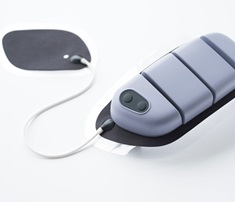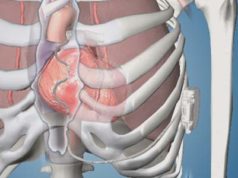
Element Science has announced the publication of results from its Jewel investigational device exemption (IDE) study—conducted at sites across the USA—in the Journal of the American College of Cardiology (JACC), as well as the recent publication of its Jewel EP lab study—conducted within the European Union (EU)—in Europace.
The publication of these positive results underscores the potential impact of the Jewel patch wearable cardioverter defibrillator (P-WCD) and highlights the value of utilising truly patient-centric technology when managing patients at risk of sudden cardiac arrest (SCA), according to a company press release.
The Jewel IDE study, which enrolled 305 patients and successfully exceeded all prespecified endpoints, provides crucial data on Jewel’s safety, compliance, and efficacy, the release also notes. Notable findings from the Jewel IDE publication include:
- High compliance and protected time: patients using Jewel achieved a median wear-time of over 23 hours per day, showcasing its ease of use and integration into patients’ daily lives
- Lives saved and no deaths: the device successfully converted eight separate ventricular tachycardia or ventricular fibrillation events in six different patients, effectively preventing SCA, and no deaths were observed in patients while enrolled in the study
- Low inappropriate shock rates: the study observed a very low inappropriate shock rate of just 0.36 shocks per 100 patient months, providing patients with peace of mind.
“The results are a clear indication that wearable defibrillators can be designed with the patient in mind,” said Javed Butler (Baylor Scott and White Research Institute, Dallas, USA), a national principal investigator for the Jewel IDE study and primary author of the recent JACC publication. “Jewel’s comfortable and water-resistant design allows patients to maintain their daily activities while still receiving life-saving protection.”
“The study results presented in JACC represent a significant achievement for the company and provide clear evidence of how the high compliance seen with the Jewel led to patients wearing the device when they needed it, thereby saving numerous patients from SCA,” Uday N Kumar, founder, president and chief executive officer of Element Science, added. “Jewel’s unique design, accompanied by a sophisticated machine learning algorithm, addresses many of the challenges faced by traditional wearable defibrillators. We look forward to seeing the positive impact Jewel will have in real-world practice.”
In addition to the Jewel IDE study, the Jewel EP lab study was conducted to provide foundational evidence on the safety and effectiveness of Jewel in terminating life-threatening arrhythmias. Element Science has claimed that this first-in-human study, which also met all prespecified endpoints, was “crucial”, as it confirmed that Jewel could successfully identify and convert life-threatening rhythms in a single shock.
“Improved adherence with wearable defibrillators can significantly impact patient outcomes,” stated Karol Watson, a member of Element Science’s scientific advisory board. “Results from the EP lab study followed by the Jewel IDE study showcase the potential of the Jewel P-WCD to provide continuous protection for patients at risk of SCA, without the usual challenges related to comfort and adherence. It’s a large step forward in providing effective solutions for those with significant heart disease.”
“Patients with significant heart disease, especially those who are recovering from certain events like a heart attack, face a high frequency of out-of-hospital SCA—often accompanied by a low survival rate,” Zubin Eapen, Element Science’s chief medical officer, also commented. “By enabling truly continuous SCA protection that patients can easily manage while they recover at home, Jewel can greatly enhance these patients’ survival prospects and is an important addition to the tools physicians have to protect their patients.”
WCDs are effective at restoring patients’ heart rhythms to normal, but they have faced challenges related to patient comfort, and therefore compliance, limiting their widespread adoption and leading to potentially avoidable deaths from SCA, Element Science states in its recent release.
Jewel—the company also claims—addresses these compliance issues with its low-profile, water-resistant design, allowing patients to wear the device comfortably during daily activities, including showering and moderate exercise. Jewel is designed to integrate into patients’ lives, allowing them to comfortably carry out daily activities.












